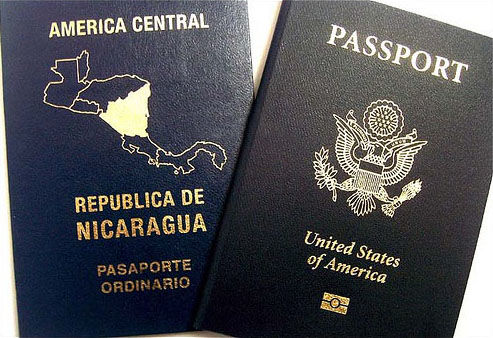Stanley: Should dual citizenship be allowed?

Trips abroad that are sponsored by Iowa State are now required to register beforehand. The Office of Risk Management provides resources to help reduce risk and increase safety.
February 5, 2018
The Naturalization Oath of Allegiance to the United States of America states “I hereby declare, on oath, that I absolutely and entirely renounce and abjure all allegiance and fidelity to any foreign prince, potentate, state or sovereignty, of whom or which I have heretofore been a subject or citizen.”
When someone speaks these words during their naturalization ceremony, it would appear that they unconditionally renounce all allegiances to their former country of citizenship. However, the opposite is true: many naturalized citizens retain their foreign citizenships for multiple reasons, from maintaining a spiritual connection with their country of origin to mere convenience of travel.
In fact, it is so common that there is no registry of dual nationals — and the speed with which their numbers change would render one impractical anyway. This is a wonderful situation, with immense benefits for both the immigrant and the United States. Dual citizenship allows an immigrant to remain connected with their home country both culturally and economically, and the United States is poised to reap the rewards of that partnership.
While many immigrants embrace the idea of becoming wholly American, plenty wish to retain ties to their roots. For some, it can be a religious bond. For example, devout Jews revere the Holy Land and may wish to stay connected to it through the ties of citizenship.
For others, it can be family obligations. My own parents retain their Indian citizenship to send money to my grandparents. Without that benefit, the process of transferring money would be incredibly difficult. Whatever the case, continuing to hold your citizenship of origin makes it a lot easier to identify with your birth culture; drawing from my experiences once more, holding Indian citizenship has made visiting family in India wonderfully easy for my family, requiring nothing more than our passports.
However, some say dual citizenship “undermines the common bond that unites U.S. citizens regardless of their ethnicity, religion or place of birth.” While this is an understandable opinion, it misses the point of the American experience — diversity is not a weakness of the American people, it is, perhaps, our foremost strength. The diverse experiences we can share with one another are what make us smarter, stronger and more resilient.
The idea of the “melting pot” is commonly referred to when discussing diversity and acceptance; however, the “melting pot” is an outdated idea which focuses on assimilation into one giant, homogeneous culture. The differences we each bring to the table are what enrich our nation, deepening our understanding of the world and expanding our horizons through each story we listen to. As a friend once told me, “The world ends with you. If you want to enjoy life, expand your world. You gotta push your horizons out as far as they’ll go.”
There are also more practical objections against the concept of dual citizenship. According to the State Department, U.S. law neither supports nor rejects the possibility of dual citizenship and does not require an individual to choose between their multiple nationalities. This, of course, brings up the question of the course of action to pursue in the case of conflicting obligations to both nations. The wording of the oath of naturalization obliges the citizen to side with the United States in the event of any foreign conflicts of interest.
Michael Wildes, a partner in the New York immigration firm Wildes & Weinberg, stated the understanding is they will “work in concert with the U.S. Constitution but never against it.” However, there are steps that can be taken to punish those who abuse this freedom. In extreme cases — such as serving in the military of a country at war with the U.S. or committing an act of treason — their American citizenship can, of course, be revoked. The American justice system has not shied away from exercising this power either. In 2014, a Guatemalan man was stripped of his citizenship for his involvement in the Dos Erres massacre, and a Chinese woman was denaturalized for her involvement in an information security breach.
What is an American?
The American is a person who has overcome numerous challenges throughout their life and earned their position through blood, sweat and tears. The American is a person who welcomes diversity while embracing new traditions — some of the best qualities immigrants possess. Dual citizenship is an excellent tool for immigrants to utilize. Through it, they can demonstrate their loyalty and allegiance to America, while also retaining a connection with their ancestral origins. A dual citizen is no less American than a natural-born one or a naturalized one, and they are one of the greatest expressions of American diversity possible.






